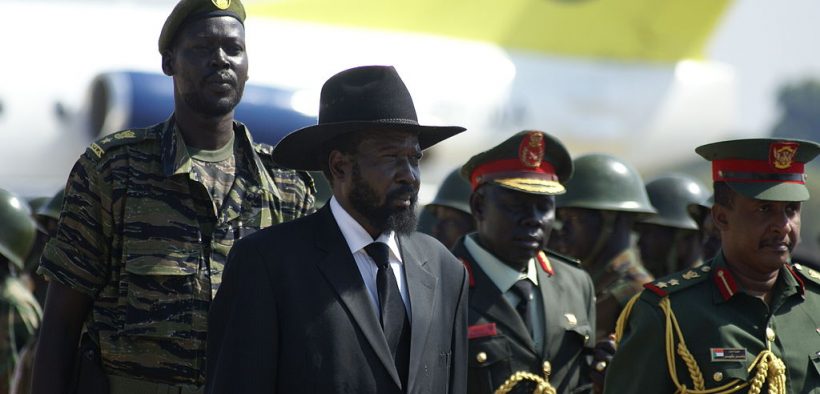South Sudan is Finally on a Path to a Stable Government

After a disastrous civil war and much negotiation between opposing factions, South Sudan is beginning to form a transitional government.
Both the president of South Sudan Salva Kiir and the rebel leader Riek Machar agreed on Wednesday to form a transitional government by the middle of November. The announcement comes just weeks after South Sudan’s neighbor to the north Sudan, which South Sudan split away from in 2011, formed its own transitional government after ending the 30 year-long presidency of Omar Al Bashir.
The Minister of Information in South Sudan Michael Makuie Lueth told reporters that the parties discussed some “minor issues” and “mutual principles” as the basis for a transitional government, planned to be established by November 12. Last year, both sides signed a deal that put an end to a civil war, which has claimed the lives of hundreds of thousands of people and forced a third of the population out, as well as ruined the country’s economy.
A Rare Visit
This week, Machar made a rare visit to the capital Juba from his home base in Khartoum to meet with President Kiir. The implementation of last year’s deal was delayed because the Juba government does not have enough funds to integrate all the armed forces across South Sudan.
Officials with the government of South Sudan said that meetings this week are aimed at sorting out all outstanding issues, including constitutional amendments, number of regional states and security laws.
The negotiations are intended to commit South Sudan to a transition period of three years, and both Kiir and Machar reportedly expressed satisfaction with their talks. At the end of the three-year period, the country will hold elections.
Prior to Recent Agreements
In 2011 following decades of war between Sudan’s central government of former ousted president Omar Al Bashir and rebels in southern Sudan, South Sudan split from Sudan. Two years later, South Sudan itself engaged in an internal conflict. In 2013 Kiir fired his vice-president Machar, and fighting between the two ensued.
In September 2018 both sides signed a peace deal under international and regional pressure. Machar visited Juba only in October of that year, after having stayed in Khartoum since Kiir sacked him in 2013. He promises more visits to Juba now.
















How can South Sudan become and remain stable when the whole African continent — and indeed the entire world — is manifestly very unstable in many respects, all with grave consequences.